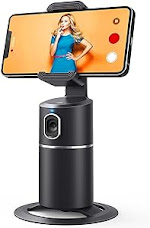Clear news: How safe is the express bus to Malaysia?
SINGAPORE: Between 2022 and March this year, there were at least 32 reports of accidents involving express buses traveling long distances between Singapore and Malaysia.
Nine of the reported cases involved passengers from Singapore.
Recently, the Mediacorp crew of the show 'Talking Point' researched how safe express buses are to ride. This is one of their findings...
DRIVERS ARE NOT FEARLESS EVEN IF THERE ARE SECURITY WEAKNESSES
For popular routes such as from Singapore to Kuala Lumpur, a survey of several platforms to buy tickets such as BusOnlineTicket, Easybook and redBus found that about 20 percent of buses start traveling between 10.00pm and 6.00am.
About two-thirds of the accidents reported between 2022 and this year occurred during the mentioned time.
To delve deeper into this issue, the Mediacorp crew boarded a bus to KL that was scheduled to travel overnight.
The first thing found was a problem with the seat belt.
The crew had to change seats three times before finally finding a seat with a seat belt that still worked.
Wearing a seat belt is mandatory on express buses. So the crew actually "didn't expect to have any difficulty finding seats with working seat belts".
There is also no substitute driver on the bus, whereas the law stipulates that this must be done for trips over 300 kilometers.
The journey between Singapore and KL is around 350 kilometers.
Another flaw detected - using a 'speed tracker' (speed detector) - is that the driver's speed reaches "as high as 125 kilometers per hour" while the speed limit for buses on the highway is 90 kilometers per hour.
The speed of the bus the Mediacorp crew was on "almost all the time" was between 100 and 110 kilometers per hour. The driver arrived in KL "in less than four and a half hours".
There, the Mediacorp crew interviewed several express bus drivers to uncover why most of the reported accidents, occurred at night.
"Krish", who had been driving for more than two minutes and asked not to be identified, cited "speeding" as a factor.
"We cannot drive fast (during the day)," he said. "(At) night, we drive fast... There aren't many vehicles."
Obeying the speed limit throughout the trip too, he added, would make him feel "sleepy" and it was something "impossible" to do.
Another driver, Burhan Abdharu, shared that the reason accidents happen early in the morning is that drivers usually feel tired and "don't get enough sleep".
The longest time he drove was between 15 and 17 hours, not including breaks. At that time, he had to drive from KL to Singapore and back to KL to travel all over again.
24 HOUR GPS ROOM
Most bus operators are based in Malaysia. One of them is SuperNice Express.
The company's headquarters are located in Penang and the Mediacorp crew managed to gain access to a room with a geographical positioning system (GPS) to find out how operators can play a role.
SuperNice has over 200 drivers and around 100 buses - all monitored by a 24-hour operational team.
If a bus is driven over 100 kilometers per hour for two consecutive minutes, an alarm will sound in the room.
The team will then warn the driver to drive more slowly, said Roy Chew, chairman of Unimax Group which owns SuperNice.
Drivers are given a 10 kilometer per hour leeway to overtake other vehicles. After that, they should drive more slowly, at a speed of 90 kilometers per hour, he explained.
Unfortunately, he doubts that all bus companies monitor all their buses 24 hours a day all week.
In addition, SuperNice introduced buses with several additional safety features, such as a warning system that is activated if the driver is not wearing a seat belt.
There are also sensors that are able to detect if the bus is driven at close range with other vehicles. The brakes will be activated automatically to avoid collisions.
Cameras are also installed to monitor the drivers and they are not ordinary closed circuit cameras.
"When the driver feels sleepy or frequently rubs his eyes, (the camera) will activate an alarm sound," shared Mr Chew.
"Our GPS team will then contact the driver to tell him to rest for 15 or 20 minutes."
If the driver is not fit to continue driving, "we will then switch to a second driver", added Mr Chew.
The cameras imported from Taiwan were installed last year.
Since 2022, SuperNice defends expected around RM1 million (S$284,810) to improve safety for its new buses, he revealed.


















No comments